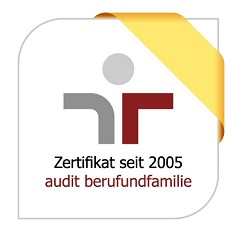PhD Student in Cancer Breaksome
Kennziffer: 2025-0272
- Heidelberg
- Full-time
- Functional and Structural Genomics - Junior Research Group "Brain Mosaicism and Tumorigenesis"

The German Cancer Research Center (DKFZ) is one of Europe’s largest cancer research centers. “Research for a life without cancer" is the mission of our world-class scientists and all our team members.
The DKFZ is a place where the brightest minds pursue bold ideas and seek answers to pioneering scientific questions through collaboration, innovation, and exploration across many disciplines. We provide a dynamic environment which empowers excellence with state-of-the-art technologies, cutting edge infrastructure, and a global scientific network.
Contribute your knowledge, vision, and dedication to create a space where scientific discovery in cancer research is transformed into benefits for human health.
The Junior Research Group "Brain Mosaicism and Tumorigenesis" headed by Dr. Pei-Chi Wei is seeking for the next possible date a
The Brain Mosaics & Tumorigenesis Laboratory at the German Cancer Research Center (DKFZ) investigates how the genome is shaped, maintained, and disrupted in health and disease. We are particularly interested in how replication stress, transcription–replication conflicts, and DNA repair pathways influence the formation of double-strand breaks, copy-number alterations, and other structural genome changes.
Our group combines cutting-edge genome biology approaches with quantitative, multi-omics analyses to uncover the mechanisms that generate and resolve DNA damage. We have developed and routinely apply high-resolution mapping technologies — including LAM-HTGTS for direction-resolved DNA break mapping, Hi-RepliSeq for replication timing and directionality, GRO-seq for nascent transcription, and DRIP-seq for R-loop detection. These methods allow us to integrate replication, transcription, and DNA repair features at nucleotide resolution across large genomic datasets.
We focus on cancer models (osteosarcoma, breast cancer, leukemia) and on neural progenitor cells to understand how genome instability contributes to tumor initiation, therapy resistance, and disease progression. By pinpointing cell-type-specific vulnerabilities in the genome, we aim to identify novel therapeutic targets and inform personalized treatment strategies.
Our research environment is highly collaborative and interdisciplinary, spanning genome biology, computational analysis, and translational cancer research. Members of the lab gain expertise in next-generation sequencing, genome-wide data integration, statistical modeling, and hypothesis-driven experimental design, preparing them for leadership roles at the interface of molecular biology and data science.
Ihre Aufgaben:
Project Description
Replication stress (RS) disrupts DNA replication and is a hallmark of cancer. RS often leads to DNA double-strand breaks (DSBs), which can fuel genomic instability but also reveal therapeutic vulnerabilities. In collaboration with the Aqeilan Lab (Hebrew University), we aim to map RS-mediated and naturally occurring DSBs in cancer cells at nucleotide resolution.
Using advanced sequencing technologies, we will characterize DSB landscapes across osteosarcoma, breast, and leukemia cell lines and compare them with in vivo tumor models. This multi-omics approach will pinpoint cancer-specific DNA break hotspots and their association with transcription, replication dynamics, and RNA:DNA hybrid formation.
Goals of the PhD Project
- Map and classify RS-mediated and naturally occurring DSBs in distinct cancer cell types
- Integrate multi-omics datasets (DSB maps, replication timing/direction, transcription orientation, and R-loop profiles) to identify cancer-type-specific vulnerabilities
- Generate engineered cancer cell lines (in collaboration with a technician) and design hypothesis-driven analyses to identify targetable mechanisms of genomic instability
- Contribute to developing reverse-translational strategies for therapeutic interventions in osteosarcoma and breast cancer
Future Perspective
The project offers the opportunity to work at the forefront of cancer genomics using cutting-edge sequencing and integrative computational analyses. The successful candidate will gain expertise in multi-omics data integration, statistical and computational methods, and translational cancer research. Results from this work are expected to reveal new mechanisms of genome instability, inform RS-targeting therapies, and open avenues for personalized treatment strategies.
Ihr Profil:
- Major in biology, bioinformatics, or related fields (genetics, genomics, bioengineering, applied mathematics)
- Obtained or will obtain a Master’s degree in the above fields
- (For biologists) Intermediate programming skills in R or Python and prior experience analyzing omics datasets are advantageous
- (For bioinformatic-mathematic trait) Good performance in biology courses at university
- Proficient in English (spoken and written)
- Self-motivated, committed, and capable of independent as well as collaborative work
Note: The PhD project will focus on computational and experimental analyses of cancer cell lines; animal experiments will be performed by collaborating labs.
Interested candidates should submit a CV, cover letter, academic transcripts, and contact details of two references via the online application portal. Review of applications will begin immediately and continue until the position is filled.
Unser Angebot:
- Hervorragende Rahmenbedingungen: modernste state-of-the-art Infrastruktur und Möglichkeit zum internationalen Austausch auf Spitzenniveau
- Zugang zu internationalen Forschungs-Netzwerken
- Doktorandengehalt mit den üblichen Sozialleistungen
- 30 Tage Urlaub
- Flexible Arbeitszeiten
- Möglichkeit zur mobilen Arbeit und Teilzeitarbeit
- Familienfreundliches Arbeitsumfeld
- Nachhaltig zur Arbeit: Vergünstigtes Deutschland-Jobticket
- Entfalten Sie Ihr volles Potenzial: gezieltes Training und Mentoring durch das DKFZ International PhD Program und den DKFZ Career Service
- Unser betriebliches Gesundheitsmanagement bietet ein ganzheitliches Angebot für Ihr Wohlbefinden
Sie sind interessiert?
Dr. Pei-Chi Wei
Telefon: +49 6221/42-3251
Bewerbungen per E-Mail können leider nicht angenommen werden.
Bitte beachten Sie auch, dass wir per Post eingereichte Bewerbungen nicht zurückschicken können.

